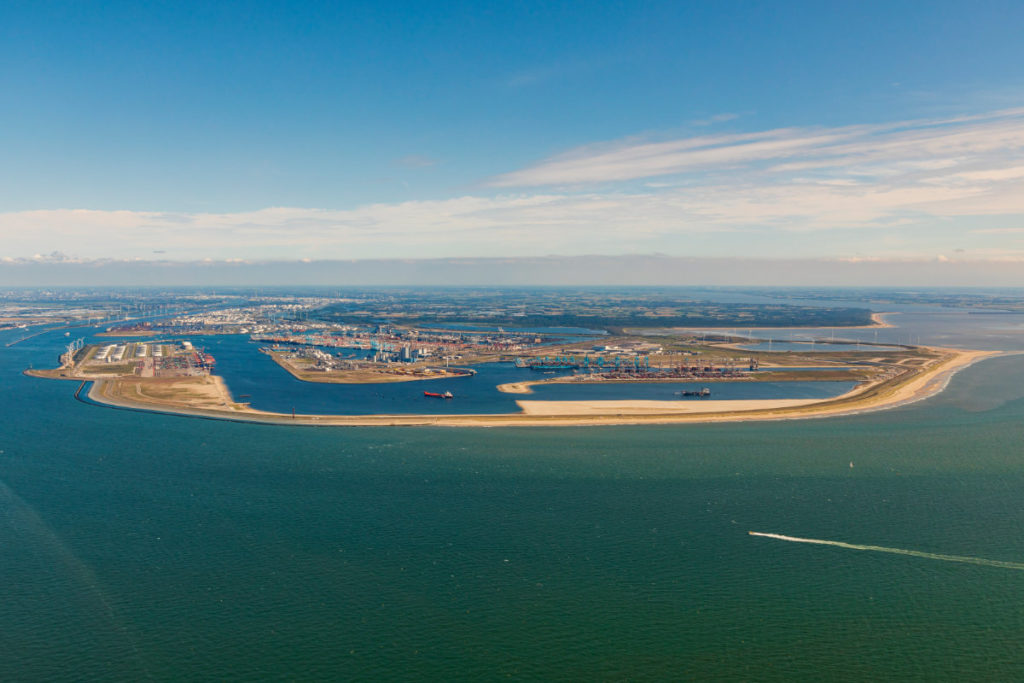
© Guido de Pijper and Rotterdam make it happen as the owners of the materials.
To flatten the curve of climate change,urgent actions are needed
In 2019 the European Commission launched the European Green Deal strategy to overcome climate change challenges. Greening transport is one of the key objectives of the European Green Deal. Transport accounts for 25% of the EU’s greenhouse gas (GHG) emissions. The objective is to reduce the GHG emissions of transport by 90% by 2050.
In this context, seaports will play a major role in boosting the use of cleaner technologies, green energy carriers and logistics concepts in maritime transport, port operations and hinterland transport (road, rail, barge, and pipeline) to reduce GHG emissions.
The Port of Rotterdam, the largest seaport in Europe with many transport connections for all modes of transport, is frontrunner in the energy transition and has the vision to become a zero-emission port by 2050. Together with the fellow ports HAROPA, Sines and DeltaPort (which is an inland port) the Port of Rotterdam supports the European Green Deal sustainability goals.
Our project is carried out under the framework of call H2020-LC-GD-2020 entitled “Building a low-carbon, climate resilient future: Research and innovation in support of the European Green Deal”. This call is placed under the responsibility of the fund Horizon 2020.
Granted public funding total amounts to 25 million €, for a period comprised between 1st October 2021 and 30th September 2026.
- Reference: grant agreement n°101036594
- Executive agency: CINEA